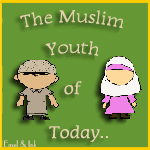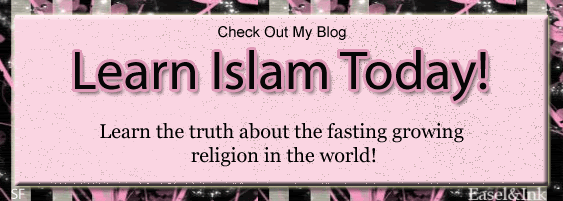Practical Tips
I want to spend a little bit of time about what we are supposed to do practically. There is a big difference between us and the companions from many perspectives. One of those perspectives is when they heard the Qur’ān being recited and when they recited more and more of it in the month of Ramaḍān and when they were listening to it being recited, there was no gap between them and what Allāh was saying. It was a direct communication from the Divine to them. They recited and understood immediately what it was saying to them and appreciated its beauty and power also. You and I try to do that when we go and stand in tarawīḥ prayer and the masājid make the extra effort to get the qāri with a beautiful voice.
First of all, for those s who are fortunate to go to tarawīḥ prayer and last, the fact that you even go is awesome. The tragedy of it is that the vast majority of us Muslims are standing there and enjoying the beauty of the recitation but are not enjoying what Allāh is saying at all because we don’t know what He is saying and there is no direct connection. There is a big gap between what the ṣaḥābah experienced and what we are experiencing. When there is a difference in this experience, then what comes as a result is also different.
An analogy is that there is one plant you are feeding pure water and what it needs. There is another plant and you are feeding it some kind of liquid, but it is not getting it and there is a filter and layer that is not letting the water seep into the soil. We are not going to see the same results and are not going to see the output. We have to make an effort to compensate for that. It is not like you are going to learn Arabic in a month. It is not like you are going to learn the tafsīr of the Qur’ān in a couple of weeks and Ramaḍān is around the corner.
Connecting with the Qur’ān
What do you and I have to do to make the most of this month in terms of connecting with the Qur’ān practically and understanding what it has to do here? At the heart of it, it has to do with how Allāh makes us different from all other nations. How do we reconnect with the Qur’ān in this month in a way like never before? I’m personally a believer in practical stuff. I could give you stories of how the companions used to recite the Qur’ān and how the salaf (early generations of scholars) used to recite the entire night and over and over again.
The practical reality of it is that the fact that you made time to listen to this broadcast is an accomplishment for you. You have a busy day and a lot going on, especially in your virtual life, and for you to make time like that normally in a day is difficult and not something typical for you. How do you practically get the most out of Ramaḍān? Start with some tangible, attainable goals.
Recitation after Fajr
Start with 20 minutes of recitation after fajr, and I specifically say after fajr because that way you will guarantee that you wake up for fajr. Waking up for fajr is a very high accomplishment for some of you, but try and do it starting now so that you have some momentum going into Ramaḍān so that it is not a situation where you have been lazy for this entire time and then the first day of Ramaḍān you will be up for fajr. Even if you are, you’re lazy momentum is far more than your active momentum, so after a couple of days, you will be back asleep again with the momentum going down. When you get up, stay up 20 minutes. Don’t rush it and take your time with it. Whether you understand it or not, just recite.
Our teacher used to tell me when I was studying Arabic that I needed to recite at least 20 minutes a day, and I said, “What’s the point? I don’t know Arabic.” He said, “Let me tell you a story.” I will tell you the same story. A child asked his father the same question about why he should recite Qur’ān because he didn’t understand Arabic. His father took him to the ocean and gave him a dirty bucket with a hole in the bottom and told him to fill it up. The child ran and filled up the bucket and ran back, but by the time he was back, it was empty. The father told him to go fill it up again. The child said that there was a hole, but the dad said to fill it up again. He did this five or six times. Then the child asked, “What is the point?” The father said, “Do you notice any difference in the bucket? Is it cleaner?” The child said, “Yes.” The father said, “That is why you read Qur’ān even though you don’t understand it.” Even that has benefits.
Don’t be philosophical and say that until you are the master of Arabic grammar and you have a Ph.D. in balāghah and have done some degrees in tafsīr, then what is the point of reading the Qur’ān in Arabic. Don’t be like that. Just recite the Qur’ān for its own sake anyway.
Building Our Relationship with the Qur’ān
I myself feel very far from Allāh (subḥānahu wa ta‘āla) and feel guilty every day that I’m not closer. What I need to do for myself is what I’m telling you very honestly. We need to make a very clear assessment of what kind of time commitment we can give to Allāh’s Book daily without exception. We all know our time schedules and what our weekdays and weekends are like and how much time we spend in commute and in chores. There are some things you do on time and don’t think twice about it. One of those things religiously speaking, if you are anywhere near being a committed Muslim, is your daily prayers. One of the easiest ways you can connect to the Qur’ān is associating a 5-10 minute reading or studying of the Qur’ān every single prayer. You don’t have to make extra time because you were going to use that time to pray anyway. This is a practical and helpful step in you progressing with the Qur’ān.
I’m going to switch gears and talk to you about something personal, which is my own personal relationship with the Qur’ān and how I approach the study of the Qur’ān for myself. Maybe you will find some parallels and maybe you won’t, but I think it is of benefit to some of you at least.
First and foremost, I really do believe that the best way to learn the Qur’ān initially is not through reading. I’m talking about beyond the actual recitation of the Qur’ān, which should go on every day. After that, I think the best way to go about understanding the Qur’ān is to have a teacher and have someone explain it to you. Many of you are not in that position and don’t have a shaykh or imam or regular tafsīr session going on, or even if there is, maybe you don’t understand the language being used. If that is the case, find a series online that you can listen to. What you listen to sticks in your head. What you read goes away quickly.
If you heard a powerful khuṭbah and were paying attention, you remember it. It’s incredible. There is something about listening. Allāh highlights listening to the Qur’ān when He says, “We heard a unique Qur’ān.” Allāh highlights this. It is listening to the recitation or the explanation because we have to fill that gap. The ṣaḥābah didn’t have a special explanation session, and the Qur’ān was self-explanatory to them on many occasions. Having a teacher or having a listening experience is very important. It was for me and really broadened my horizons in the study of the Qur’ān. I was able to understand it much better that way because I’m a better listener than I am a reader. I can read something and understand it, but I won’t retain it.
The second point is that there is an overflow of resources online now and so many translations and so much available to you that you become overwhelmed. You may ask, what translation should I read? You have a pile of books or online resources and don’t touch any of them because it looks like an ocean and if you go any closer then you’ll drown. Take one thing and take your time with it. Don’t diversify so much. Allāh Himself said in the sūrah, and this concept of Allāh intending ease and not difficulty for you is not just about fasting. It is about what Allāh began with – the Qur’ān itself. The Prophet (ṣallallāhu ‘alayhi wa sallam) is being told, “We didn’t send the Qur’ān to you to put you in difficulty.” This is the same Qur’ān that Allāh says if He sent it down on a mountain, it would collapse. On the one hand, a mountain can’t handle it, and on the other hand, it is given to the Messenger (ṣallallāhu ‘alayhi wa sallam) and he is being told it is not there to make life difficult for him. Here we are learning that Allāh wants to make ease and not difficulty. In Sūrat’l-Nisā’, we learn that Allāh just wants to lighten your burden and make things easy for you.
Allāh wants us to enjoy the ease of life through this Qur’ān. The practical part of it is to be realistic and don’t get overwhelmed with too many resources and take one thing at a time and look at a set amount of time – 15-20 minutes or whatever you can give. Make that time a regular part of your life. You are going to be living your life the way you are ten years from now, too. Don’t justify their laziness today with unrealistic needs. Don’t be people whose false hopes delude them now. Be a people of today.
I tell my students all the time that there is no such thing as tomorrow. All you and I have is today. If there is a change that is going to come in your life, if it doesn’t come today, then you might as well not even talk about it. Don’t say that from Ramaḍān you will pray fajr in the masjid. You have to start from today. Your attitude has to be now, and you and I don’t know if we have until Ramaḍān. We have to bring this attitude of immediate change into ourselves. The ṣaḥābah were in prayer and they turned.
Attitude
As I conclude, I want to go back to the first thing I started with – attitude. I told you that the revelation of Qur’ān distinguishes us from other nations. This is also a point of pride. Nowadays we complain about non-Muslims making fun of us. When the qiblah changed, the people made fun of the Muslims. Allāh made what people were making fun of the point of our pride. It is something we are proud of. The month of Ramaḍān is a month of taking pride in the Qur’ān and saying that we are people of Qur’ān. Nowadays when people hear the word Qur’ān outside, what kinds of thoughts run in their minds? Crazy, fanatical, barbaric. We know the Prophet’s (ṣallallāhu ‘alayhi wa sallam) promises. We are committing ourselves to Ramaḍān and connecting ourselves to the Qur’ān and we can earn forgiveness and start a new start.
The Qur’ān itself is a mercy. Allāh, the unimaginably Merciful, taught the Qur’ān. We have to realize that the Qur’ān is not a burden on us. It is a mercy from Allāh to us and we have to try to qualify ourselves for that mercy and earn that mercy from Allāh. For people who can make a journey to the Qur’ān and even do a little especially in this month, it can transform their lives. Don’t let this be like any other tradition for any other religion. Other religions have festivals and parties and have turned what is supposed to be originally something that was supposed to bring them closer to God into a party. Don’t let that happen. Allāh talks about the previous nations and how their attitude became corrupted and says that after a long time went by, their hearts became hard.
The month of revelation is what we have. Don’t let it become the month of biryani, baklava, and ifṭār parties. It’s supposed to be a month when we go back to our roots and connect back to this Book. We are supposed to be a distinguished nation and the Qur’ān is a point of pride.
The Qur’ān is a record of the struggles of the Prophet (ṣallallāhu ‘alayhi wa sallam). The entire Book is a record of what he struggled through. He went through one challenge and Allāh revealed āyāt to help him through. After that there is no break, and the next challenge and the next revelation come. The Qur’ān is constantly his guide through all of the challenges and all of the storms. There will never be a job more difficult than that of the Prophet (ṣallallāhu ‘alayhi wa sallam). When we say that we are going to connect ourselves to the Qur’ān, it is disingenuous to say that and not say that we are going to connect ourselves to the same struggle of the Prophet (ṣallallāhu ‘alayhi wa sallam). We carry the same concerns for ourselves, our families, and those around us of saving ourselves.
The concern never left him and it was such an overwhelming concern that at times the Qur’ān told the Prophet (ṣallallāhu ‘alayhi wa sallam) to calm down and not stress out. “You are going to kill yourself in grief if you keep worrying about the consequences of what they are doing.” Allāh calms His Messenger down. Where is that concern in the ummah? This religion is more than about ourselves. It is about all of humanity and the larger picture and guidance for all. This message was delivered from a human being to a human being. The Messenger himself delivered it to others, which requires struggle. How are we delivering the Qur’ān? When we deliver the Qur’ān, it means that we represent its message. How are we representing it in our character? These are things for us to think about.
Connecting to the Qur’ān doesn’t just mean to recite it more, which is critical, and doesn’t mean to memorize it more and listen to it in tarawīḥ. All of these things are helping us become one with the Qur’ān not only in the time we spend with it but how it affects our personality. The character of the Prophet (ṣallallāhu ‘alayhi wa sallam) was the Qur’ān. The āyāt start becoming the way we look at the world. It is not a book of academics and not a book of recitation or beauty. All of these things are there, but more than anything else, it is a book of attitude. Once you internalize the Qur’ān, your attitude about everything is different. Everything you see around you gives you a reminder of Allāh. You see Allāh’s āyāt everywhere after you have a connection with the Qur’ān. When you don’t, then it is just a book to be recited. You can have that attitude, but you will miss out on the spirit of it and what this month is really supposed to be.
I pray that all of us become a people of Qur’ān in this month and we take the advice of Allāh’s Messenger (ṣallallāhu ‘alayhi wa sallam) who told us, “People of Qur’ān, don’t be lazy with the Qur’ān. Read it and follow it like it deserves all hours of the night and day. Spread it. Beautify it with your voices and reflect so that you may be able to be successful.” I pray that Allāh makes us from the successful and from the people of the Qur’ān. What an honor it would be for the Messenger to call us people of the Qur’ān. Let’s earn that name and let’s be able to say on the Day of Judgment that we are people of the Qur’ān.
Notes from http://ramadanprep.ummahnow.org/Day%207%20of%20Ramadan%20Prep%20-%20Nouman%20Ali%20Khan.pdf
My goals and advice coming up next :)
Subscribe to:
Post Comments (Atom)





No comments:
Post a Comment